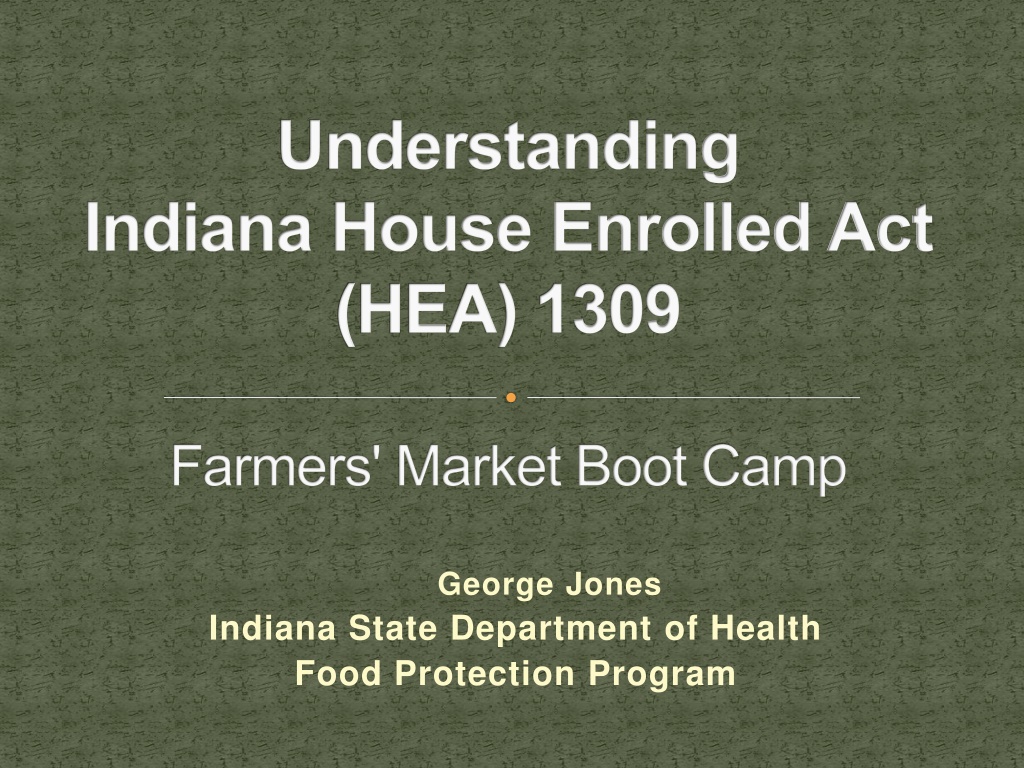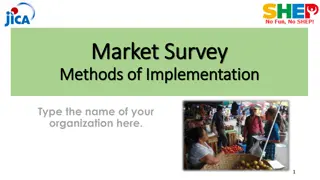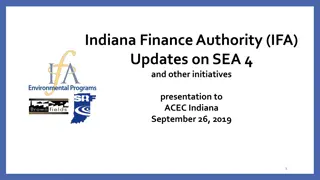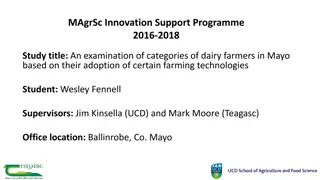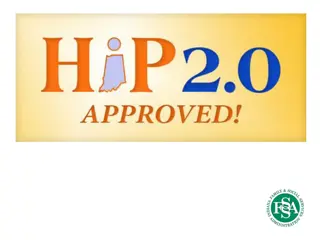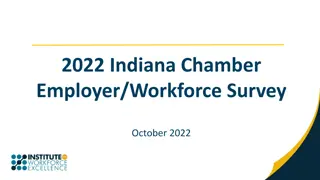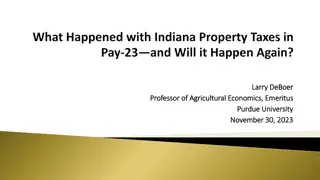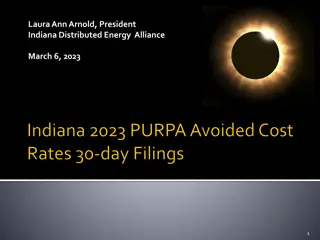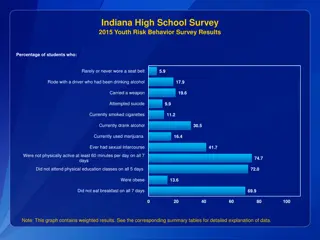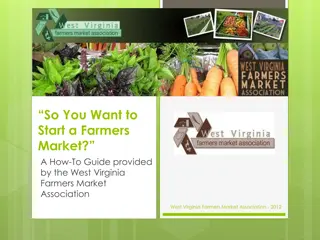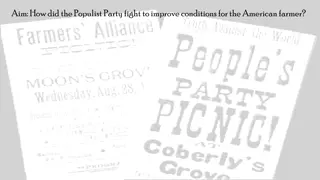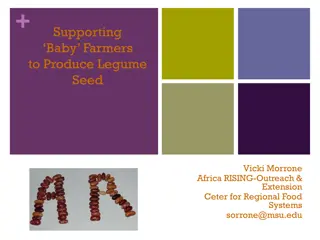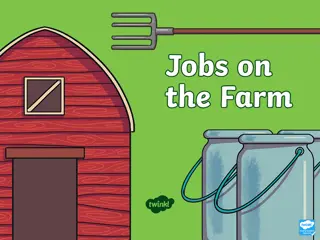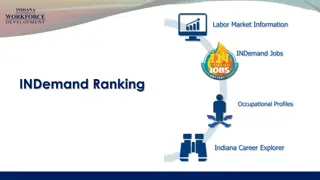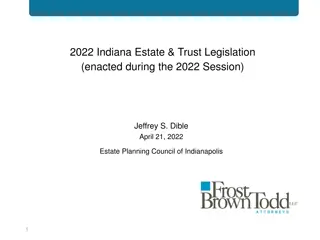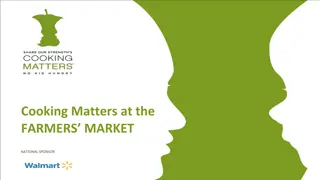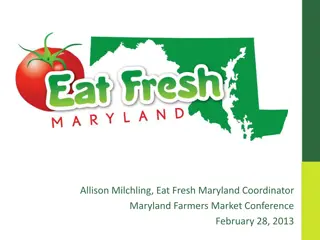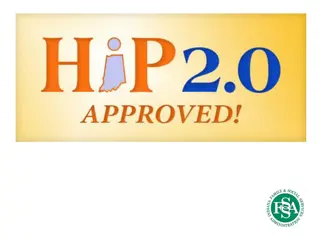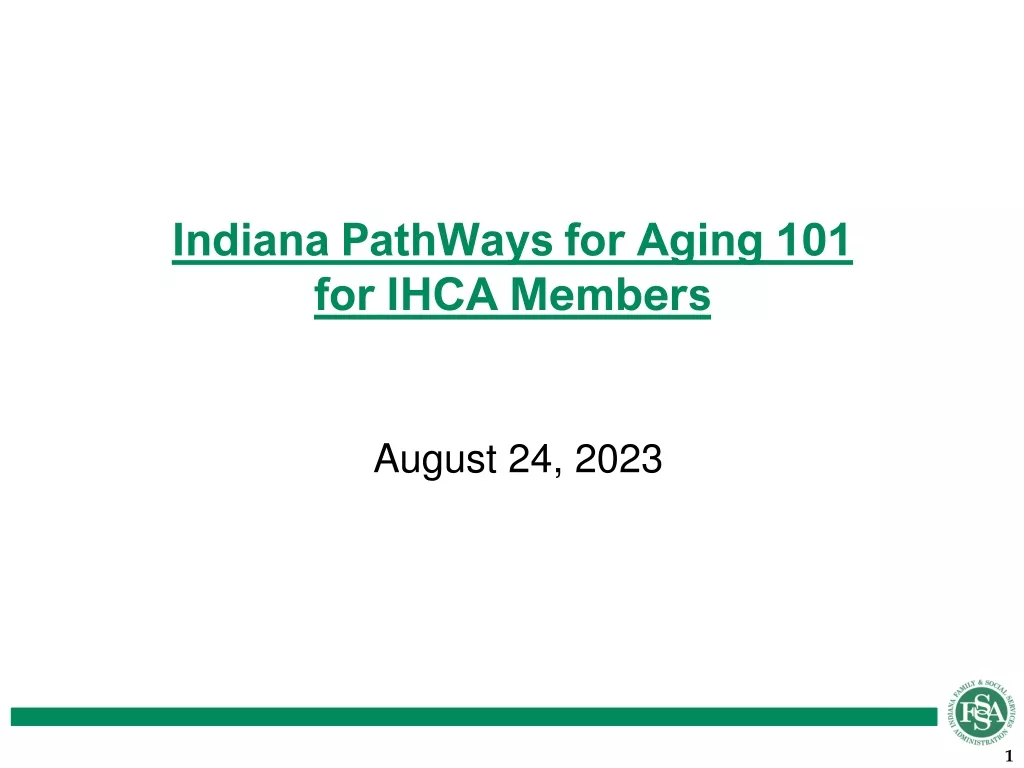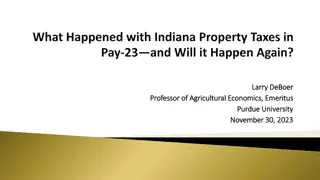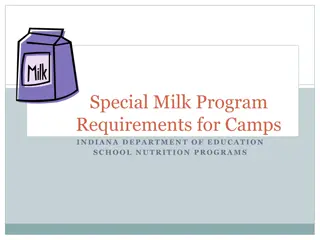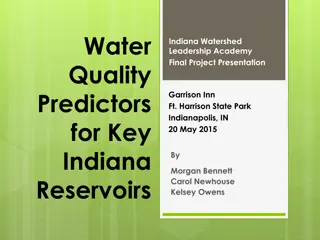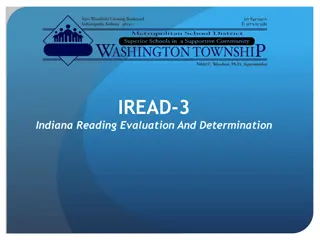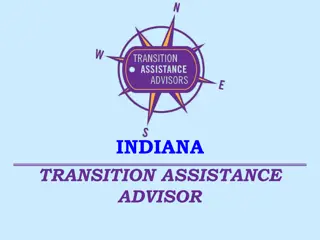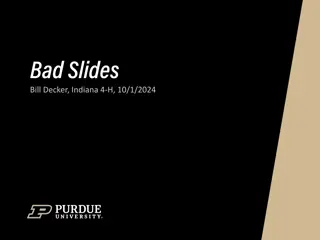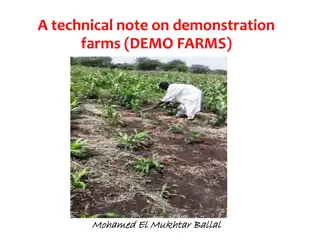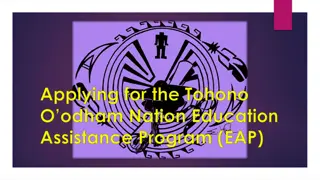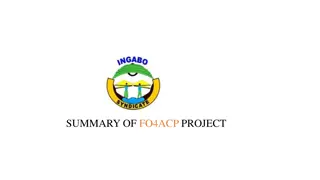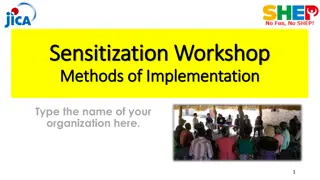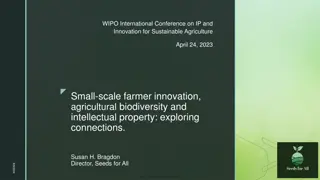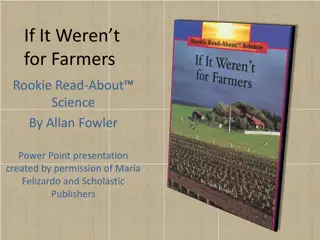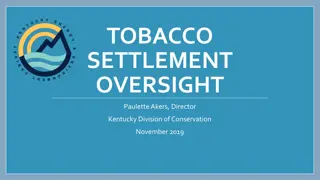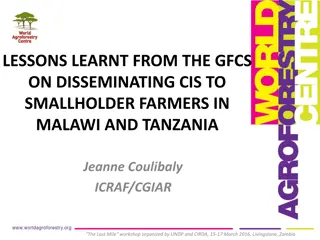Understanding Indiana House Enrolled Act 1309: Farmers' Market Regulations
Indiana House Enrolled Act 1309 brings significant modifications to food establishment regulations, particularly for individual vendors at farmers' markets and roadside stands. The act allows certain food products to be sold in limited public places, impacting licensing, fees, and regulatory oversight in the state. These changes aim to support local vendors while ensuring food safety standards are maintained.
Download Presentation

Please find below an Image/Link to download the presentation.
The content on the website is provided AS IS for your information and personal use only. It may not be sold, licensed, or shared on other websites without obtaining consent from the author. Download presentation by click this link. If you encounter any issues during the download, it is possible that the publisher has removed the file from their server.
E N D
Presentation Transcript
Understanding Indiana House Enrolled Act (HEA) 1309 Farmers' Market Boot Camp George Jones Indiana State Department of Health Food Protection Program
News from the Marion County Health Department ! Anticipating a change in the ordinance relating to farmers markets - one license per vendor per year - change in fee structure - if passed, will become effective May 1st
House Enrolled Act 1309 Three statutory changes Allow certain food products Private residence Limited regulatory oversight Legally sold in two public places
Background A food establishment is defined in Indiana Code (IC) 16-18-2 and regulated under IC 16-42-5 (also known as Sanitation Requirements for Food Establishments ) IC 16-42-5 gives authority to promulgate rules for food establishments Examples of rules written with this authority Retail Food Establishments covered under 410 IAC 7-24, Sanitation Requirements for Retail Food Establishments Wholesale Food Establishments covered under 410 IAC 7-21, Wholesale Food Establishment Sanitation Requirements
Retail 410 IAC 7-24 Food Establishments Regulated under IC 16-42-5 Wholesale 410 IAC 7-21
HEA 1309 Modifications to Indiana Code 16-18-2 and 16-42-5 HEA 1309 passed in 2009 by Indiana Legislature made three changes to two Indiana statutes: Changed the definition of food establishment by adding a new exclusion in IC 16-18-2-137
HEA 1309 Modifications to Indiana Statutes An individual vendor of a farmer s market or roadside stand is NOT a food establishment if the individual meets the requirements of IC 16-42-5-29 In order to meet the exclusion, food products may be sold in ONLY two public places in Indiana: Farmers Markets Roadside Stands Individual referred to as Home-Based Vendor (HBV)
Modification Resulting from HEA 1309 Limited Regulatory Oversight Regulated Entities Food Establishments Not A Food Establishment Retail Home Based Vendors Wholesale
Relevant Definitions Farmers market: a common facility where two or more farmers or growers gather on a regular recurring basis to sell a variety of fruits, vegetables and other farm products directly to consumers Can be combined with other events, but must be with the farmers market This is NOT an individual produce market operated by a person or company
Relevant Definitions Roadside stand: a place, building, or structure along, or near, a road, street, lane, avenue, boulevard, or highway where a HBV sells his/her food product(s) to the public. This does NOT include the HBV s residence or a regulated food establishment
HEA 1309 Modifications to Indiana Code 16-18-2 and 16-42-5 HEA 1309 passed in 2009 by Indiana Legislature made three changes to two Indiana statutes: Changed the definition of food establishment by adding a new exclusion in IC 16-18-2 Added a section to 16-42-5 outlining the requirements for home based vendors (HBV)
Requirements of IC 16-42-5-29 The individual vendor (HBV) selling at a farmers market/roadside stand is NOT considered to be a food establishment if the vendor s food product: Is MADE in the individual s primary residence (or in an adjacent area on the same property) Cannot be a commercial kitchen (regulated food establishment) Is NOT a potentially hazardous food product
HEA 1309 Modifications to Indiana Code 16-18-2 and 16-42-5 HEA 1309 passed in 2009 by Indiana Legislature made three changes to two Indiana statutes: Changed the definition of food establishment by adding a new exclusion in IC 16-18-2 Added a section to 16-42-5 outlining the requirements for home based vendors (HBV) Added the term and definition of potentially hazardous food product in IC 16-18-2
Restricted HBV-Produced Food Products Potentially hazardous food products (PHF) PHF are natural or synthetic foods that require temperature control because of capability to support: Rapid and progressive growth of infectious/toxigenic microorganisms Clostridium botulinum Salmonella enteritidis pH (acidity), water activity (Aw) and other intrinsic factors are considered when making a determination
Examples of PHF Meat (domestic or wild) Poultry Aquatic animal products Dairy* Egg products* *Excluding some baked items and dried noodles
Additional Types of PHF Use of reduced oxygen packaging (ROP) methods Canned or hermetically sealed containers of acidified or low-acid foods Cut melons Raw seed sprouts Non-modified garlic-in-oil mixtures Cut tomatoes
Specific Examples of Allowed HBV Food Products Baked goods cakes, fruit pies, cookies, brownies Candy and confections caramels, chocolates, fudge Produce whole and unprocessed Tree nuts and legumes Honey, molasses, sorghum, maple syrup Jams, jellies, preserves only high acid fruit May be temperature controlled only for quality
Items for Clarification Shell eggs are considered a PHF Shell eggs cannot be sold by a HBV, but can be sold by a regulated food establishment Pickles, if made by acidification, cannot be sold by a HBV Low acid and acidified foods must be commercially sterile HBV cannot do this Such as: Green beans, pickled beets, salsa, etc.
Further Requirements of IC 16-42-5-29 The individual vendor (HBV) is NOT considered to be a food establishment if the vendor s food product: Is prepared by an individual who practices sanitary procedures Proper hand washing Sanitation of packaging Safe storage of product Is not resold Includes a label with the required information
Labeling of HBV Food Products HBV food products must be labeled Label must include the following: Producer s name and address Common name of food product Ingredients of food product Net weight and volume Date food product was processed The following statement in 10 point type: This product is home produced and processed and the production area has not been inspected by the State Department of Health.
Placards vs. Labels In place of labeling on the product a placard may be used in some situations: When the product sold is not packaged Must contain all the same required labeling information Labeling is encouraged in most situations
Other Considerations Food sampling by a HBV: Sampling does not include the assembling of 2 or more HBV food products at point of sale Sampling must be discontinued if not conducted in a sanitary manner Points of clarification: may not sell other commercially prepared products (prepackaged items) shall not deliver to any location other than a farmer s market or roadside stand (pre-ordering is acceptable) may not sell products in another state at a farmer s market or roadside stand without meeting the requirements of that state
Role of the Regulatory Authority under HEA 1309 A HBV is subject to inspection and/or samples of a HBV s food product can be taken by the regulatory authority if: The HBV is non-compliant The HBV s food product is misbranded or adulterated A consumer complaint is received There is an occurrence of an imminent health hazard
Role of the Regulatory Authority under HEA 1309 The regulatory authority may require further information or testing of a food product to determine whether a food product is potentially hazardous Educate market masters and vendors Refer questions to Food Safety Inspection Officer (FSIO) in the jurisdiction in which you are located or selling your products
HBV Review HBV s: may only sell non-potentially hazardous food products made in their primary residence with limited regulatory oversight may only sell their food products at a farmers market and a roadside stand may not sell their products with the intent to be resold must meet the requirements listed in statute
HBV Review A HBV who: sells PHF sells food products other than those produced in the home sells wholesale fails to meet the specified requirements becomes a food establishment and is subject to all applicable food safety laws
Resources Purdue University website: http://www.ag.purdue.edu/foodsci/Pages/IN-HEA- 1309-info.aspx Frequently asked questions about HEA 1309 Fact sheet on HEA 1309 ISDH guidance on HEA 1309 Final version of HEA 1309
